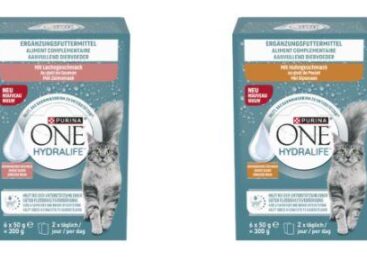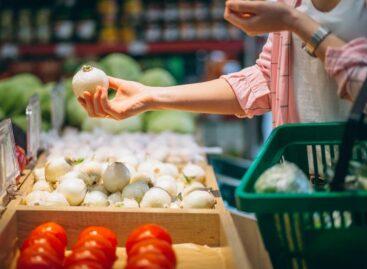Business Days 2021 – The 8th wonder of the world (Part 2)
Nearly 800 participants turned up to discuss the 8th wonder of the world – the restart of the sector – during the 5 five days of the Business Days conference, which took place in Hunguest Hotel Pelion in Tapolca on 20-24 September.
One-year rollercoaster ride

Zoltán Fekete
secretary general
Branded Goods Association Hungary
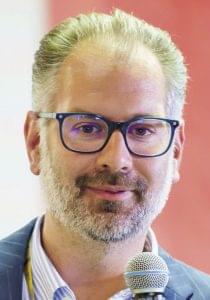
Bálint Zsinkó
managing director
KALL Ingredients
Thursday morning the moderators were Zoltán Fekete, secretary general of Branded Goods Association Hungary and Bálint Zsinkó, managing director of KALL Ingredients, who are both members of the Chain Bridge Club.
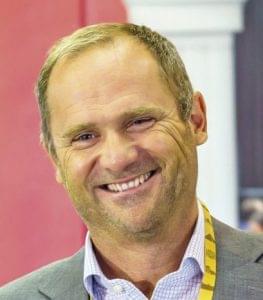
György Jaksity
president
Concorde
György Jaksity, the president of Concorde was the keynote speaker, who analysed the state of play in macroeconomics, from both global and Hungarian perspectives. He compared the economic situations and results in the 2000s and the 2010s, and shed light on why our catching up with the European Union’s average economic performance wasn’t as successful as it could have been. (You can read about his presentation in detail in a separate article.)
There was no stopping for innovations
A roundtable discussion followed, where the topic was the survival strategies of the strongest brands.

Dr. Ágnes Fábián
managing director
Henkel Magyarország
Dr Ágnes Fábián, managing director of Henkel Magyarország Kft. and president of Branded Goods Association Hungary said: one of their most important results was overcoming the health-related problems, and even in this difficult period the company invested 3 percent of its sales revenue in innovation.
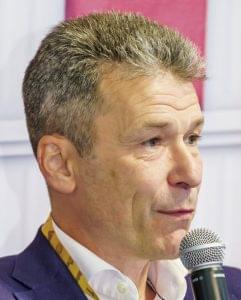
Péter Noszek
managing director
Nestlé Hungária
Péter Noszek, managing director of Nestlé Hungária mentioned that Nestlé’s sales grew both globally and in the Hungarian market, with pet food and coffee as the success categories. He agreed that one of the strengths of manufacturer brands is research and development work.
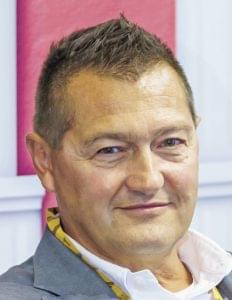
Róbert Merkler
managing director
Intersnack
Róbert Merkler, managing director of Intersnack also reported positive business results, in which the strengthening of the salty snack category played a key role, in spite of the fact that the average consumption in Hungary is still below the European level..
A different kind of planning
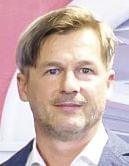
Zoltán Venter
managing director
Essity
Zoltán Venter, managing director of Essity spoke about their challenges in bringing their products into the country during the pandemic. Last year was very successful for the company sales-wise, but the demand for toilet paper developed hectically.

László Békefi
managing director
Coca-Cola HBC
László Békefi, country general manager of Coca-Cola HBC revealed that after the record-breaking 2019 performance, the company’s sales revenue dropped in 2020. In his view today it is easier to plan for the long term than before, as certain cross-sectoral trends for the future are already visible.

Attila Sófalvi
managing director
MARS
Attila Sófalvi, managing director of MARS explained that in their case it was the diverse portfolio that helped them avoid a bigger sales drop. In connection with COVID-19 they drew the conclusion that replanning work is of utmost importance.
Talent shall not be hindered by the lack of money
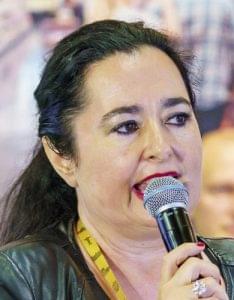
Zsuzsanna Hermann
chairperson of the board of trustees
Chain Bridge Foundation
Following the discussion Zsuzsanna Hermann, chairperson of the board of trustees and
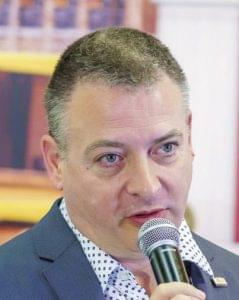
Tamás Csongovai
member of the board of trustees
Lánchíd Alapítvány
Tamás Csongovai, member of the board of trustees reported on the last 12 months of the Chain Bridge Foundation. They introduced the 12 secondary school students whose studies the foundation sponsors – all of them are very talented and motivated young people, who only need some financial support to get a university or college degree.
The world revolves around consumers
In the afternoon work continued with two new moderators: István Justin, managing director of Szamos Marcipán and Zoltán Poór, managing director of Puratos – members of the Chain Bridge Club. The representatives of hyper- and supermarkets, and petrol station shops were invited to the table.
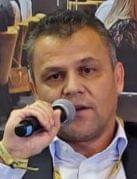
Tamás Kámán
supply chain director
Tesco
Tamás Kámán, supply chain director of Tesco told: they have played a pioneering role in Hungarian retail trade in satisfying consumer demand, creating new needs and introducing new technologies.
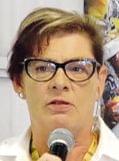
Sarolta Vecsey
mobility manager
Shell
Sarolta Vecsey, mobility manager of Shell in Hungary and Slovenia introduced Shell’s renewal after the pandemic, and spoke about the company’s commitment to become a net zero emissions group by 2050.
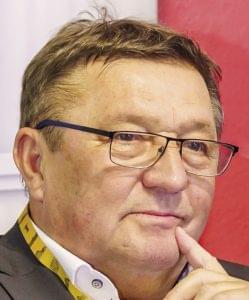
László Tóth
member of the board of directors
CO-OP Hungary
László Tóth, a member of CO-OP Hungary’s board of directors gave a brief overview of the past 10 years and mentioned the latest technologies they are introducing in Coop stores – which have been modernised and have their own logistics background.
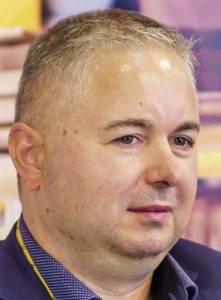
János Dorogi
country commercial director
Auchan
János Dorogi, country commercial director of Auchan spoke about how the hard times taught the team to stand united and made the company focus even more on customers. The three pillars of Auchan’s operations are fresh traditional foods, the tangibility of NEL products and seasonal categories.
Reacting to the challenges by making changes
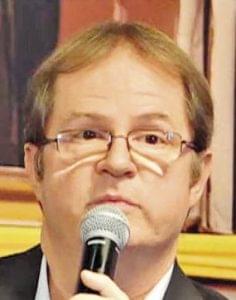
Tibor Balogh
managing director
OMV
Tibor Balogh, managing director of OMV talked about how they opened the first Viva cafés in the early 2000s and the Spar Express stores from 2013. He said the new fields of activity require continuous learning.
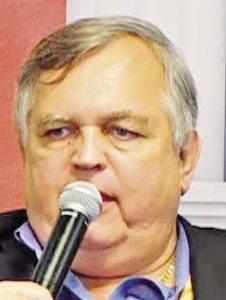
Zsolt Gyelán
vice president
CBA
Zsolt Gyelán, vice president of CBA pointed it out that Hungarian retail trade is facing serious problems: Hungarian retailers can’t compete with multinational discounter and supermarket chains, and the aging of the population plus young people leaving their villages create further problems.
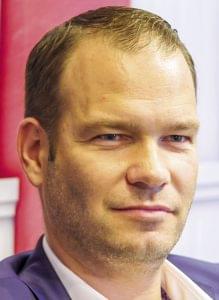
Gábor Domián
customer director
Bonafarm
Gábor Domián, customer director of Bonafarm gave an insight into how their five sectors work, using Pick Szeged, Sole-Mizo, Hungerit, MCS Vágóhíd and Csányi Pincészet as the examples.
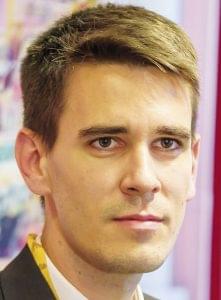
Bence Bögös
retail consumer
and digital marketing manager
MOL
Bence Bögös, retail consumer and digital marketing manager of MOL informed that the company is ahead of a major transformation, for instance at service stations they don’t want to persuade customers to sit down inside anymore – the pandemic made MOL go in the terrace and on-the-go direction.
Winning brands
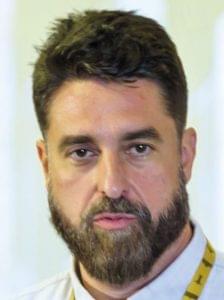
Gábor Tolnai
head of marketing insight division
Kantar Hoffmann
Next Gábor Tolnai, head of marketing insight division at Kantar Hoffmann gave a presentation about the results of their 54-country survey, which covered 73 percent of the world’s population and analysed 23,500 manufacturer brands. (You can read more about this in a separate article.)
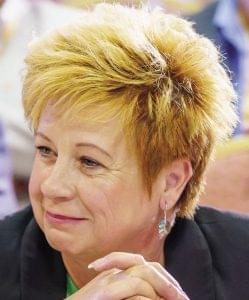
Zsuzsanna Lóczki
sales and marketing manager
K+K Family
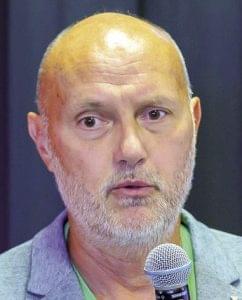
Károly Szabó
managing director
Kaméleon
Reklámügynökség
Zsuzsanna Lóczki, sales and marketing manager of K+K Family and Károly Szabó, managing director of advertising agency Kaméleon Reklámügynökség made a presentation together, which touched upon two of this year’s new K+K Family products, the 2x60g Duo Pack and Supreme that includes a nut mix and a dressing too. This year the company will roll out products in resealable packaging – in bag and box formats.
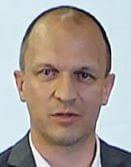
Péter Jánosi
commercial director
Salesworks
Péter Jánosi, commercial director of Salesworks called the attention of his audience to changing consumer behaviour and used various examples to illustrate the difference between automatic and hybrid systems. Salesworks currently represents 118 brands and reaches 93 percent of the population above the age of 15 years.
How will the next 10 years develop?
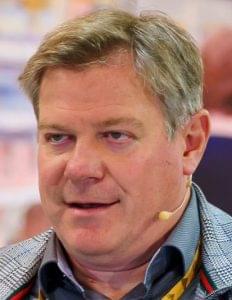
Dr. Ákos Kozák
partner
Impetus Research
In the last section of the day Dr Ákos Kozák, an Impetus Research partner and member of the Chain Bridge Club presented a vision for 2030, which has been prepared by experts from agriculture, the food industry and retail trade. He talked about global issues such as the safety of food supply, sustainability, demographics and climate change. Dr Kozák also introduced the work done in the workshops organised for preparing the possible scenarios for the future.
Digitalisation and automation are the goals
In the last roundtable discussion of the day some of those executives were present who were there at the aforementioned workshops.
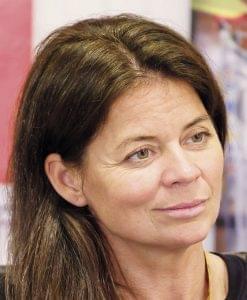
Ildikó Balázs
head of corporate affairs
Auchan
Ildikó Balázs, head of corporate affairs at Auchan expressed her view that we will be facing serious problems unless fundamental changes are made, as a reaction to climate change and the pandemic – and also in the field of healthy eating.
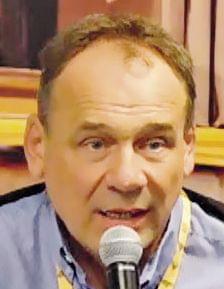
József Rácz
owner
Prémium Kert
József Rácz, the owner of Prémium Kert believes that climate change is the biggest challenge at the moment. In his view production ought to become independent of weather extremities – for instance by indoor farming.
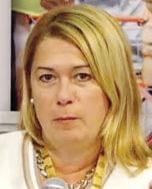
Katalin Laknerfi-Korin
national sales director
Zwack Unicum
Katalin Laknerfi-Korin, national sales director of Zwack Unicum talked about the difficulties in product ingredient supply. She also reported on the automation process taking place in their Kecskemét factory and their plans for improving water use efficiency.
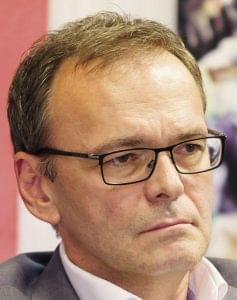
Péter Szautner
CEO
FrieslandCampina
Péter Szautner, CEO of FrieslandCampina connected the theme of climate change to ever-stricter regulations, which will entail major changes in the long run – while business operations must remain competitive.
Bringing producers closer to consumers
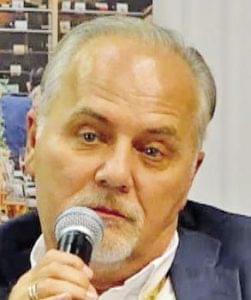
László Hovánszky
president
Chain Bridge Club
László Hovánszky, president of the Chain Bridge Club opined that producers should be brought closer to consumers if we want to reduce logistics costs and risks.
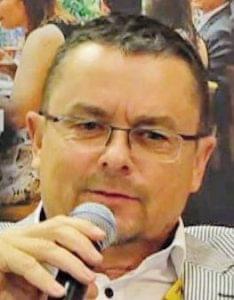
János Mezei
commercial director
COOP Star
János Mezei, commercial director of COOP Star spoke about the importance of collecting and analysing more customer data, so that personalised offers can be made to shoppers.
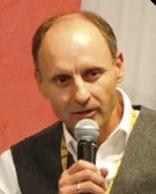
Zoltán Poór
managing director
Puratos
Zoltán Poór, managing director of Puratos shared his experience that the majority of processes are already automatic in most areas and he thinks this trend will continue in the future.
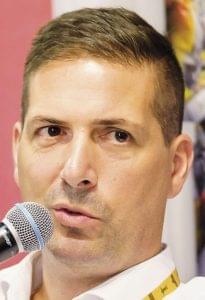
László Flórián
managing director
Rossmann
László Flórián, managing director of Rossmann talked about the blurring lines that separate various retail channels from each other. Rossmann has started to sell food and mixed-profile online businesses are now entering the segment of drugstore products.
Thursday ended with a gala dinner, where the Lifetime Achievement Award and the StarStore – Év Kereskedője awards were presented. The award ceremonies were followed by live music from Vegas Show Band and a taster of the Rio Carnival – courtesy of the TV2 Group.
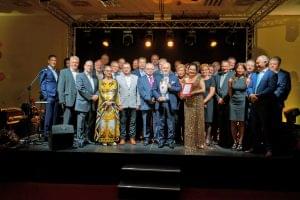
This year, the handover of the Lifetime Achievement Award was unusual: Endre Fazekas, a founder of Chain Bridge Club was delivering a commendable speech, while all members of the Club and all the 15 Lifetime Achievement Award winners were standing on stage clapping their hands and congratulated to this year’s winner, László Hovánszky. Our heartiest congratulations!
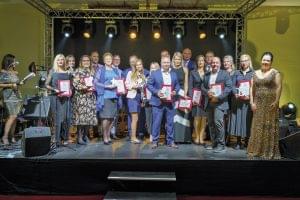
At the gala dinner of the Business Days StarStore – Év Kereskedője 2021 awards were also handed over. A detailed report on it can be read on pp. 146-158. Congratulations to all the award winners!
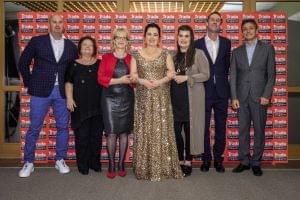
Trade magazin also celebrated its 15th anniversary at the this year’s Business Days gala dinner. During the recollections by founder Zsuzsanna Hermann a 15-minute video documentary was presented about the past, followed by Trade magazin’s colleagues who were present entering the stage and the photos of those being away were shown on a display. Dóra Bátai, account manager received the anniversary vase for Trade magazin.
A hopeful apocalypse
At the Business Days conference Friday is always the day when ‘out-of-the-box’ speakers are the guests: Szilvia Krizsó had a conversation with Péter Geszti and Tamás Náray.
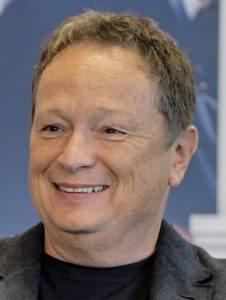
Péter Geszti
performer, lyricist,
advertising specialist
Péter Geszti – performer, lyricist, trainer and advertising specialist – feels the most at home in the world of music. He brought his latest music video for the song ‘Noé’, which debuted in May 2020 with great success. Mr Geszti talked about how the end of the world comes in the life of a person, many times, in various fields of life. This is the moment when one should collect what is good from the ‘old world’ and save it for the next one.
Adapting to the changes of the world is easier if we use the new tools that technology gives us. Mr Geszti likes digital solutions, for instance he has realised that he can save lots of time with video conferences. As for the personal dimension of changes, new periods in a person’s life bring up the topic of self-identity and credibility.
At a creative peak
Péter Geszti’s advertising agency is called Grund and it is led by his wife, Edit. In communication he is most interested in human relations: he is trying to find how people can be influenced. In his view being able to stay in the market for a long time and not losing credibility along the way is made possible by the freedom offered by music, humour and playfulness. He told that one of the biggest motivators for renewing himself was his daughter, who had drawn a picture of him as a cloud. This made him record an album about the desire for life, titled ‘Létvágy’.
Once upon a time I had a sewing studio
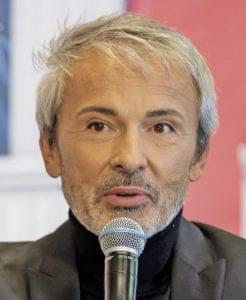
Tamás Náray
painter, writer,
fashion designer
Tamás Náray is a painter, writer and fashion designer. He talked about how he decided to leave Hungary and live in Spain, referring to his book ‘Volt egyszer egy varrodám’ (Once Upon a Time I Had a Sewing Studio) many times. Mr Náray admitted that he wants to but he can’t take a rest, so he keeps doing creative things to express himself. He is never satisfied with anything, but he can be proud of what he has achieved in life, for instance he is already a famous painter in Spain. His style is really individual, he has chosen it himself – he is an abstract impressionist who is full of soul. The artist believes that honest and factual communication is necessary for establishing an atmosphere where one can be creative.
Never stops searching
Tamás Náray has given up designing clothes for good. What motivates him in the present is to leave a trace in the world, sending a message to the next generations. He wants to stay hungry for the new and never stops searching.
Zsuzsanna Hermann closed the conference by saying that one of the best Business Days of the last 15 years came to an end, but the programme series continues: between 19 and 23 September 2022 Trade magazin will organise the next Business Days. //
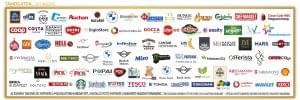
The above article has also been published in Issue 2021/12-01 of Trade magazin.
Related news
PURINA ONE HYDRALIFE
🎧 Hallgasd a cikket: Lejátszás Szünet Folytatás Leállítás Nyelv: Auto…
Read more >Chocolate rabbits might be smaller now, but they are yummy
🎧 Hallgasd a cikket: Lejátszás Szünet Folytatás Leállítás Nyelv: Auto…
Read more >EU Commissioner: New regulation strengthens protection for farmers and smaller suppliers in the food chain
🎧 Hallgasd a cikket: Lejátszás Szünet Folytatás Leállítás Nyelv: Auto…
Read more >Related news
II. Green Gastronomy – Marketing Communication Workshop organized by the MMSZ HoReCa and Green Section
🎧 Hallgasd a cikket: Lejátszás Szünet Folytatás Leállítás Nyelv: Auto…
Read more >

